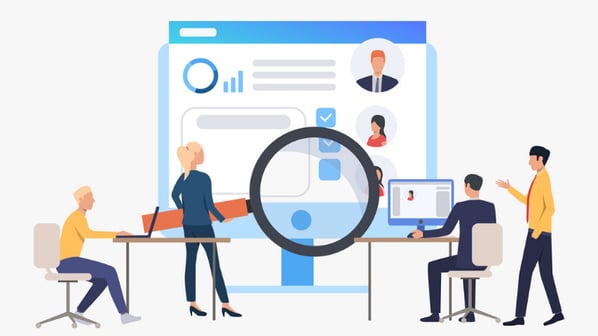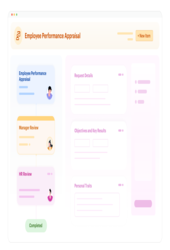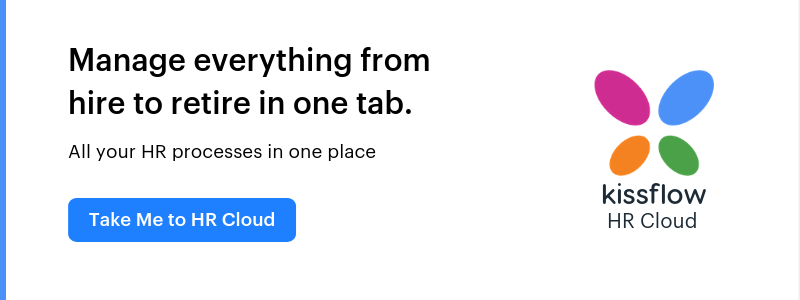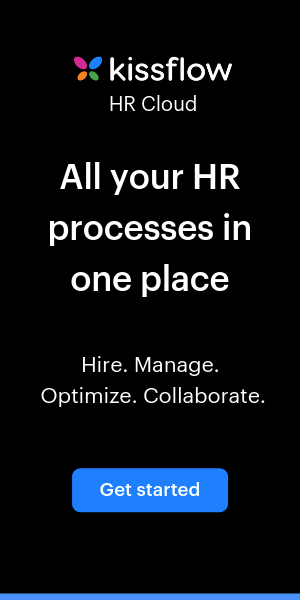For those involved in the personnel or human resources (HR) function at an organization, the terms “personnel management” and “HR management” often cause an element of confusion. They are often used interchangeably and with little understanding of the fact that, while they are not necessarily different entities entirely, key differences exist between them.
This article will further explore some of the main distinctions between personnel management and HR management. Further, it will explain how a better understanding of the terms can help your business get the most from these important functions.

What is personnel management?
Personnel management is a business function that primarily deals with the administrative and record-keeping requirements relating to the full employee lifecycle of staff in a company. The term could cover a number of different tasks and activities, such as writing contracts and letters, paying salaries, and ensuring adherence with employment law and regulations in a number of areas such as health and safety, employee discipline, grievance, etc.
How personnel management and HR management work together
“HR management” is a term that incorporates the activities undertaken within personnel management but takes this further to include additional elements. The last fifty years or more have seen a marked culture change in most forward-thinking, modern organizations. The focus has shifted from personnel management to HR management. This change is perhaps due to the the personal motivation and effort of employees.
For example, the term “talent” is now often used to describe valued individuals in an organization who contribute to the business. HR and leadership teams alike now understand that looking after their employees takes more than form filling and running payroll systems. Initiatives should be put in place that support, motivate, and upskill them.
Let’s take a closer look at some of the main differences and similarities between personnel management and HR management:
Focus on rules and regulations
Traditional personnel management focuses heavily on rules, usually laid out in the form of an employee contract or handbook. The role of line managers was to monitor compliance to said rules and ensure adherence, and employees were expected to obey these regulations.
HR management has a much different relationship with the concept of regulations. While undeniably necessary, there is generally a more flexible approach to rules. Generally, the only non-negotiable rules are those that are in place to ensure safety and the respect of others. This flexibility typically promotes a much more “can do” attitude of the employees.
The thinking behind this is that if employees are restricted by an overload of rules, they will be unable and unwilling to use their initiative and creativity to benefit the business.
Leadership style and employee relations
Top-down decision making was very much a feature of traditional personnel management. The business strategy was agreed on at the board level and then cascaded down for line managers to work with their teams to follow and implement.
HR management takes a much more pluralist approach, encouraging staff to engage fully in the vision and business objectives and share ideas on how they feel that their role has the potential to personally contribute towards reaching such goals.
Reward, including compensation and benefits
Personnel management was known for focusing on a pay and benefits structure organized around set hourly rates, with increments for long service. A strongly held principle within more modern HR management is that paying individuals based on their efforts and results often encourages greater efficiency and improved performance. Therefore, there is a much bigger focus on performance-related pay and bonuses, rather than on seniority.
Role of management
Line managers play an important role in all organizations. They are the first point of contact for employees. However, their primary role differs between the fields of personnel and HR management. The role of the line manager within traditional personnel management is to monitor and control. The employee is asked to work to a set of procedures, and it is up to the line manager to oversee this work.
HR management switches this line manager focus to that of encouragement, support, and nurture, in which employees are encouraged to share ideas and lean on their line manager for coaching and assistance. This is viewed as a good way to support employees to have the ability to work independently and use their skills and experience within their roles more autonomously.

#Free Template
About the performance management template
Functions and principles of personnel management
The principles of personnel management inevitably differ across different companies. However, the majority of organizations believe that effective personal development, good communication, the dignity of labor, and high morale are the key benchmarks within the function and should be integrated into both HR and wider organizational strategy at all levels.
Personnel management has a number of key functions as follows:
1. Planning
This aspect involves forecasting what staff vacancies might be required by the business in the future and subsequently planning recruitment activities to support this.
2. Organizing
Personnel management is responsible for ensuring that the organizational structure of employees meets the business needs, both now and in the future.
3. Staffing
This involves inducting new hires effectively into the business and working on an ongoing basis with staff to train and develop them within their current roles. This includes identifying opportunities for potential transfers or promotions.
4. Motivating
Good personnel management is responsible for creating and maintaining a harmonious working environment. This includes ensuring that the compensation and benefits strategy for the business encourages success, employee disciplinary and grievance procedures, effective communication, and solid health and safety policies.
5. Controlling
Ensuring a robust performance appraisal process is crucial for personnel management. Also vital is supporting initiatives to help employees’ attitudes towards work to be positive, with high morale.
How can personnel management software help your organization?
It is clear to see just how much work is involved in personnel management. HR teams who attempt to do all tasks using manual procedures, paper-based forms, and complicated spreadsheets often find that this is all they have time to do!
Personnel database software helps organizations automate many of their most commonly undertaken processes. This, in turn, frees overworked personnel teams to focus on HR activities that actively contribute towards business success, such as employee training and effective recruitment.
In addition, personnel management software is a proven, effective way to ensure that the employee and HR data held by your organization is secure, accurate, and consistent. There is much less likelihood of human error causing problems for the business.
Choose a personnel management system to fit your unique business needs
Personnel management software varies enormously across different providers. When you’re shopping around the market for a personnel management system, make sure that it not only meets your personnel management needs but also fulfills the demands of your other existing HR processes.
A unified HR suite like Kissflow HR Cloud offers organizations a comprehensive personnel management solutions across the complete spectrum of HR processes, from recruitment to talent management and performance appraisals.
Created with simplicity and intuitiveness in mind, it not only solves major personnel management problems but also engages people deeply. Best of all, it’s dynamic user interface allows a business to fulfill the demands of a modern workforce without compromising compliance.
So, if you’re looking for the best personnel management software, take Kissflow HR Cloud for a free spin and see where it takes you. Sign up now for a free trial!

